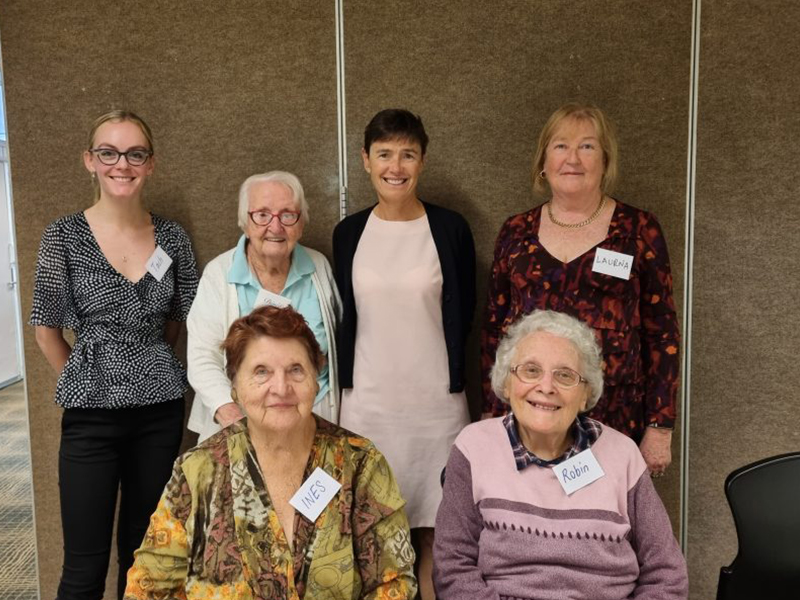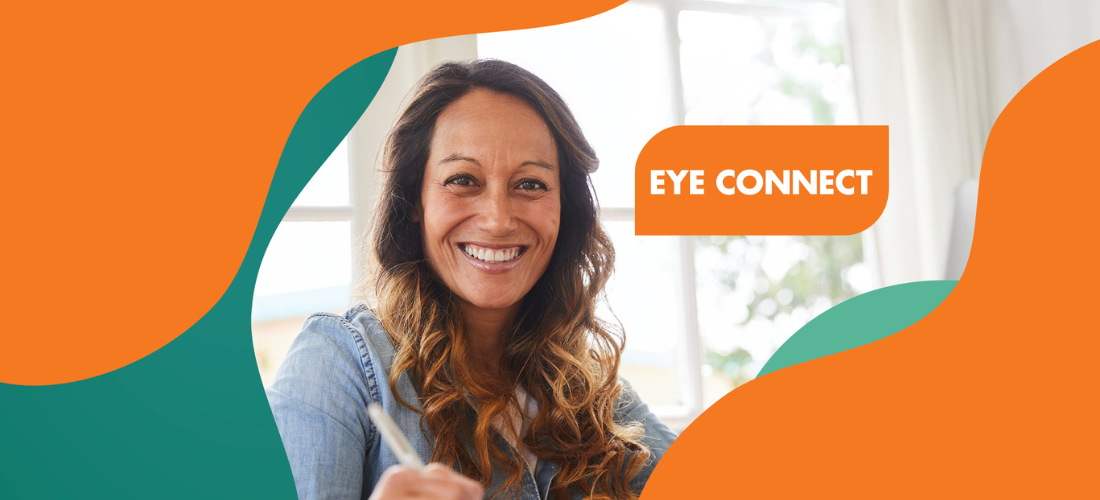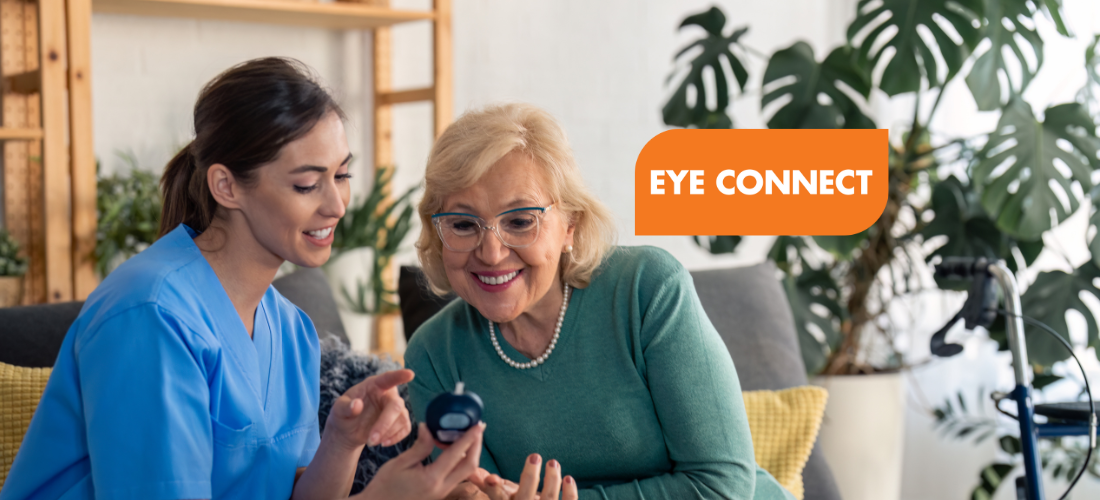Living with macular disease can be isolating. MDFA’s peer support might be the answer.
You can always seek help from an eye health professional or a counsellor, but sometimes speaking with someone who shares your experience can help you feel less isolated.
MDFA offers peer-to-peer phone calls as well as peer support groups, both face-to-face and online.
All of MDFA’s peer support services provide a safe, welcoming and inclusive environment that could help you feel less alone and better understood. Plus, they’re a fun social outlet where you can develop friendships.
Our peer support activities provide a way to connect to other people who have experienced many of the same thoughts that you may be having on your journey with macular disease.

Face-to-face peer support groups
Our first peer support groups met in Melbourne.
With the guidance and support of MDFA staff, attendees discuss their experience of macular disease, provide support for each other, and learn from each other.
The meetings are facilitated by people who live with macular disease themselves, such as Bill, who has wet AMD in one eye and dry AMD in the other.
“Everyone is very ready to talk and share ideas and experiences, which is terrific,” says Bill, who has experience facilitating similar groups thanks to his background in social work in the mental health space.
Co-facilitator Kerry – a teacher before she retired, as well as a member of the AMD community – is also inspired by the group’s openness.
“I am certainly taken by the heroism, I suppose you’d say, of two or three of the attendees who really live life on their own and do it very successfully and have also worked out how to get whatever supports were available,” Kerry says.
We also provide face-to-face peer support in Townsville, North Queensland.
In their first meeting, the Townsville group shared their experience of macular disease and tips to live well with AMD under the guidance of MDFA’s Programs and Services team.
“The most memorable thing about the first meeting for me was the fact that Natasha and Steve made the effort to come up from Sydney to actually spend that time with us,” says Laurna, who has late dry AMD in both eyes.
Laurna says that she finds it “rewarding” to help people who are going through the same thing she is.
“That’s the great thing about the way MDFA works, is that peer support means the person facilitating actually shares the same life issues as the people they’re working with,” Laurna says.
“When you attend a group, you get the opportunity to talk to like-minded people with no judgment.”

At Home with MDFA
Would you prefer to receive peer support from the comfort of your own home?
Then you might want to join ‘At Home with MDFA’, an online peer support group that connects Australians living with AMD remotely via Zoom.
The group is looking for new members if you’re interested in joining.
Peer-to-peer calls
Sometimes you just need a friendly voice on the other end of the phone. Our peer-to-peer phone calls provide exactly that.
These calls aren’t a counselling service, but they do give you the opportunity to speak to an MDFA volunteer who has a personal connection to macular disease.
Our volunteers can share their own experiences, plus, they’re great conversationalists!
Are you interested in peer support?
Would you like to join a face-to-face peer support group, or start one where you live?
Do you want to sign-up for a peer-to-peer phone call? Or are you interested in joining ‘At Home with MDFA’?
If so, we would love to hear from you!
Please call our National Helpline on 1800 111 709 or contact us today.
Posted: 26 August 2021
















